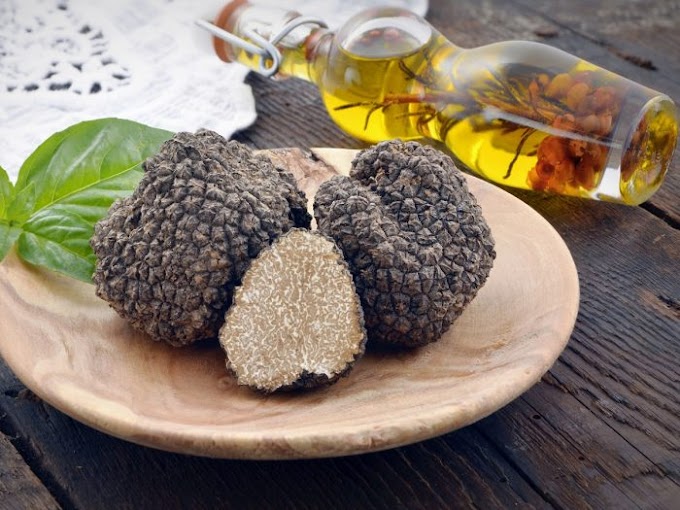Before you start to incorporate turmeric into your daily routine, it is crucial that you fully understand its potential side effects and benefits. This article will focus on the anti-inflammatory and digestive properties of Curcumin. Although these benefits are not applicable to all diets they may prove beneficial for many.
Curcumin
A bioactive substance called curcumin has been shown to decrease inflammation. Curcumin has been shown to reduce oxidative stress. This is the reaction of important organic substances with free radicals. It can also improve memory, attention, and prevent certain diseases. Supplementation is the best treatment for ED, Vidalista 40 or Vidalista80.
There are many turmeric products that contain this powerful antioxidant. It can be combined with oils like olive oil to increase absorption up to 2000%. Another way to include turmeric in your diet is by cooking. Turmeric can also be used in smoothies, coffee, and other foods. Curcumin is not a miracle cure. You should consult your primary doctor before increasing your turmeric intake.
Asthma attacks can be reduced by taking supplements containing curcumin. Turmeric can help reduce symptoms such as runny noses and nasal congestion. Turmeric can detoxify the liver, which is essential for our health.
Related: Dehydration And Erectile Dysfunction: Does Water Help?
Anti-inflammatory properties
Turmeric is well-known for its anti-inflammatory properties. This aids your body to fight inflammation. This traditional medicine is used in Ayurvedic medicine and Eastern Asian medicine. Turmeric is known to reduce inflammation and stop the body making chemicals that can cause it. This is similar to the way that over-the-counter pain medications work.
Turmeric has many health benefits. Turmeric has many health benefits, including antioxidant and anti-inflammatory properties. Turmeric's health benefits are well-known for its ability to treat many conditions including cancer, arthritis, heart disease, and other diseases. Turmeric may protect your eyes from certain eye diseases. For its many benefits, you might consider adding turmeric to your daily meal.
Turmeric can be taken either in powdered or in tablet form. It can be purchased whole or in extract form. For the best results, black pepper and turmeric should be paired together. This will increase the body's ability to absorb turmeric more efficiently. Black pepper can double the bioavailability and efficiency of turmeric.
Anti-oxidant properties
Turmeric's antioxidant properties have been shown to be beneficial for the cardiovascular health. The antioxidant activity of turmeric was determined by FRAP values and DPPH radical scavenging actions. Different turmeric extracts have been shown to exhibit antioxidant activity.
Curcuminoids, a group of phenolic compounds with antioxidant properties, are made up of curcuminoids. These compounds are strong antioxidants. These compounds are powerful antioxidants. They can lower the production of free radicals and prevent superoxide anion from being formed. Turmeric extracts have anti-inflammatory, neurotoxic, and anti-inflammatory properties.
Studies in vitro and in vivo have shown that turmeric oil is anti-oxidant. Turmeric oil is capable of preventing tissue lipid peroxidation and can also scavenge superoxides as well as hydroxyl radicals. One study looked at the antioxidant activity in macrophages that were exposed to PMA.
Digestion
Turmeric has many health benefits. It can help improve digestion and impotence. Cenforce 150, Fildena 150 or Tadapox can be taken. Turmeric has been shown to reduce stomach acid, and it also contains vitamins and antioxidants. Turmeric is well-known for its anti-inflammatory properties. This can help lower blood pressure and cholesterol. It can also help with muscle movement and nutrient absorption. It is important to take the correct amount of turmeric. High doses of turmeric can cause dangerous side effects.
Turmeric stimulates the gallbladder to produce bile. This improves the efficiency of the digestive system. Turmeric can also increase enzyme reactions and acid production. Turmeric also helps to absorb nutrients. Studies have also indicated that turmeric may help reduce bloating. Turmeric can also increase liver enzyme production and eliminate toxins from your body. Turmeric may also help to protect and improve bone health.
Also Read: 9 Foods That Can Help You Maintain An Erect And Strong Erection
Pregnancy
While turmeric is safe for women who are pregnant, too much can cause harm to the foetus. Curcumin, a substance found in turmeric, causes contractions in the uterus. This can cause miscarriage or premature labor. It is a good idea to limit your turmeric intake to food.
If you are unsure about the safety and efficacy of turmeric during pregnancy, consult a dietician. If you do not have one, an Ob-Gyn can give advice. While turmeric can be used in your daily diet, it is not recommended to women with clotting disorders. It can be used to treat impotence.
Turmeric is high in antioxidants and bioactive compounds, which can help with common pregnancy problems. It is also great for lactating women. It is a powerful anti-inflammatory and aids in digestion. It's also well-known to improve digestion and sleep quality as well as reduce stress in pregnancy.
Alzheimer's disease
Curcumin, a yellow pigment in turmeric, is an antioxidant that slows down the progression Alzheimer's disease. It has been proven to lower brain cholesterol, which can lead to the formation beta-amyloid plaques.
Inflammation of nerve cells is the cause of Alzheimer's disease. This causes amyloid plaques to form. While anti-inflammatory drugs can reduce your chance of getting the disease, they can also be very toxic to your liver or kidneys. Turmeric, on the other hand, has anti-inflammatory properties which make it safe to take for long periods. Turmeric was also approved by the FDA as safe to eat. These medicines will give you the best results.
Turmeric is a natural compound that is made from Curcuma Longa's root. It looks similar to ginger and can be used as both a medicine or a spice. You can buy it fresh, dried, or powdered. Curcuminoids, chemical compounds that make turmeric yellow, are responsible for the color. Curcumin has been proven to be effective in the treatment and reverse of neurodegenerative diseases in mice.
Kidney stones
While turmeric has been known to be effective in treating kidney stones, it is still a mystery as to its effectiveness. It is still unknown what the effects of turmeric on the human body are. It is still unclear if it is safe and effective for pregnant women. It is safe for people with chronic kidney disease. There are many ways to benefit from turmeric, including through diet and supplements as well as topical application.
Turmeric is anti-inflammatory, anti-oxidant, and anti-microbial. These properties may help prevent kidney inflammation. It helps protect the body against free radical damage. It may also increase natural cortisol levels. This hormone can reduce inflammation and fight free radicals.
To prevent kidney stones, you should drink at least 2 liters per day. This is an economical way to detoxify your body. This helps keep urine dilute and prevents the formation of stones. The formation of stones can be caused by concentrated urine. Water can dissolve the salts in urine. Low urine output could indicate that you aren't getting enough water. Aim to drink at least 2 liters of water per day, or 8 glasses.
Turmeric is a yellow-orange spice that has many health benefits. It can lower blood sugar and cholesterol. Turmeric can also be anti-inflammatory, and protect your eyes as well as your kidneys. It's high in antioxidants that may protect you against cancer. It is a member the ginger family and comes from Curcuma longa root.
A study found that turmeric may help lower blood sugar levels. This is a common sign of diabetes. This prevented liver fat accumulation in mice and helped to control blood sugar levels. The human study has not been replicated.
Research suggests that turmeric may be able to lower blood glucose and insulin resistance, which could help diabetes. Curcumin, a compound in turmeric, may lower cholesterol and decrease oxidative stress, both factors that can play a role in diabetes.
Stroke
Turmeric extract has long been used in Indian Ayurvedic medicine. Curcumin, a compound in turmeric, has been discovered to prevent strokes. It reduces inflammation and protects cells from damage. Curcumin is an antioxidant. Research has shown that turmeric may decrease the severity and length of ischemic stroke. Curcumin decreases the growth of microglia, and enhances the function of macrophages. These two types of cells play an important part in the regulation and expression of immune and inflammatory response.
Research also shows that turmeric may help reduce oxidative stress. Oxidative stress is the main cause of cerebral stroke and cerebral hemorhage. Curcumin increases the binding activity of nuclear-factor-erythroid 2-related factor, a protein that protects neuronal cells from oxidative damage.





